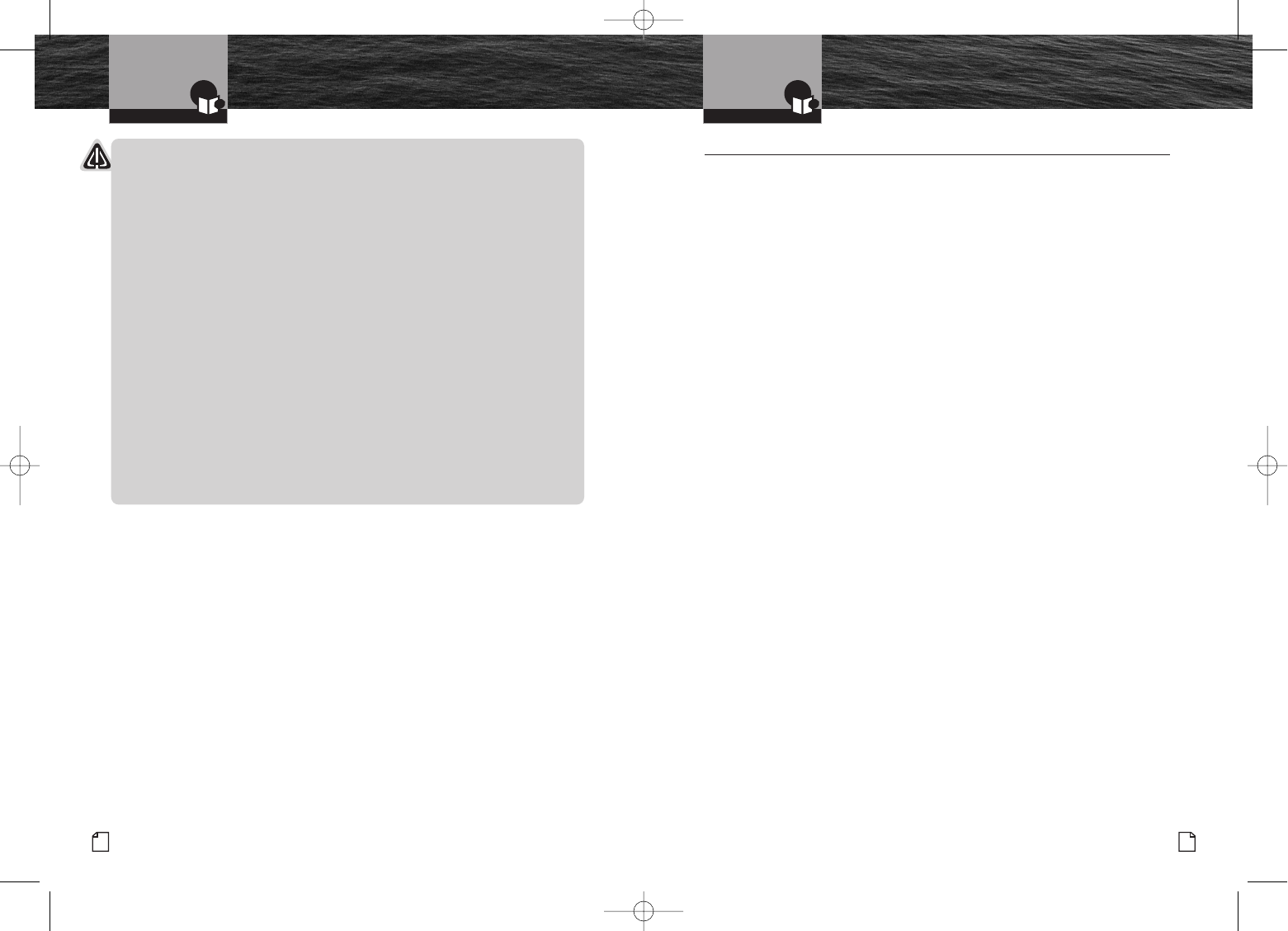
Introduction
Recommendations for
Marine Communication
Important Safety Information
Introduction
4
English
Nothing comes close to a Cobra
®
5
CAUTIONS
Your radio is only waterproof when the antenna and batteries
are properly installed.
AVOID using or storing the radio at temperatures below -20˚C
or above 60˚C.
KEEP your radio at least 1m away from your vessel’s magnetic
navigation compass.
DO NOT attempt to service any internal parts yourself. Have any
necessary service performed by a qualified technician.
This radio is supplied with six NiMH (Nickel-Metal Hydride)
rechargeable batteries.
■
Use only the CobraMarine
™
charger to recharge
NiMH batteries in the radio.
■
Do not short circuit the battery pack.
■
When replacing the batteries, dispose of the old batteries properly.
NiMH batteries may explode if disposed of in a fire.
■
The charger is to be used for charging purposes only.
It is not to be used during normal operation.
Changes or modifications to your radio MAY VOID its compliance with
government rules and make it illegal to use.
Recommendations for Marine Communication
•
The frequencies your radio uses are set aside to enhance safety afloat and for vessel
navigation and operational messages over a range suitable for nearshore voyages. If the
5 watt maximum output of your radio isn’t sufficient for the distances you travel from
the coast, consider installing a CobraMarine
™
fixed mount radio with up to 25 watts of
output power. (Visit www.cobra.com or your local dealer for model availability.)
If you will be going far offshore, you should consider adding even more powerful
radio equipment such as HF single side band or satellite radio for your vessel.
The coastguard does not endorse mobile phones as substitutes for marine radios.
They generally cannot communicate with rescue vessels and, if you make a distress
call on a mobile phone, only the party you call will be able to hear you. Additionally,
mobile phones may have limited coverage over water and can be hard to locate. If
you don’t know where you are, the coastguard will have difficulty finding you if
you’re using a mobile phone.
However, mobile phones can have a place on board where mobile coverage
is available — to allow social conversations and keep the marine frequencies
uncluttered and available for their intended uses.
400-BR-F 6/23/04 2:09 PM Page 4


















